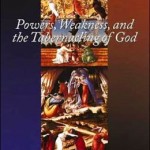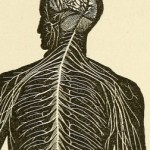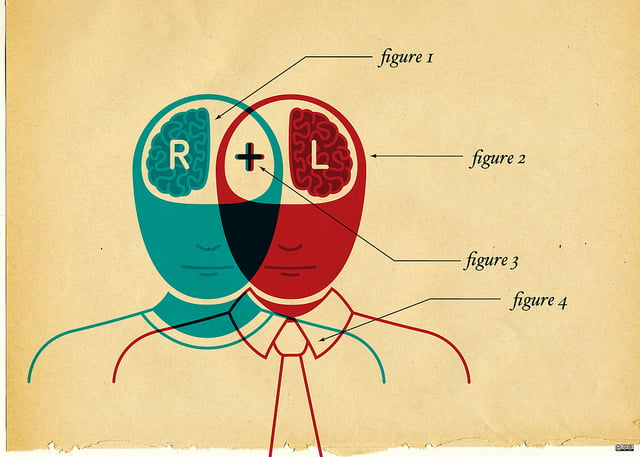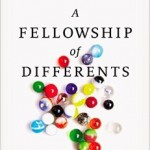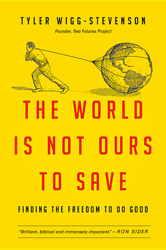 I was asked to write a reflection on Tyler Wigg-Stevenson’s new book The World is Not Ours to Save: Finding the Freedom to Do Good (IVP 2013) for the Patheos Book Club. But for those who have been following the “Slow Church and the Urgency of Justice” Series, this post is also relevant to that conversation.
I was asked to write a reflection on Tyler Wigg-Stevenson’s new book The World is Not Ours to Save: Finding the Freedom to Do Good (IVP 2013) for the Patheos Book Club. But for those who have been following the “Slow Church and the Urgency of Justice” Series, this post is also relevant to that conversation.
I recently had the chance to interview Wigg-Stevenson for the current issue of The Englewood Review of Books, so I will borrow a couple of snippets from that interview as I reflect on the book.
Cause fatigue is a significant problem among activists in the twenty-first century. As an activist himself, the founder of the anti-nuclear Two Futures Project, Tyler Wigg-Stevenson has seen cause fatigue firsthand. “As I listened more and more to what seemed to be the heartbeat of this generation,” he told me, “I began to hear dissonant tones that I know all too well: the anxiety and helplessness that comes when you look at the world’s sinful brokenness with eyes wide open.”
The greatest contribution of this book is that it offers a theological corrective to cause fatigue. Although justice is at the heart of God’s reconciling mission in the world, the burden is not primarily on us, as humanity, to fix the world. We should be engaged in God’s work, but ultimately it is God who transforms and not us. Wigg-Stevenson observes:
The first half of the book critiques the way our activist mindset often leads us astray. We’re inclined to get our calling wrong, in that we feel the need to be heroes. We can radically underestimate the challenge and complexity of the problems we face, and therefore the type of responses they demand. We tend to domesticate God in support of our causes. And we easily divide the world into ‘us-them,’ rather than realizing that we are, all of us, what’s wrong with the world we’re trying to fix.
Wigg-Stevenson describes the corrective theology he is proposing, one that will resonate with Slow Church readers, in terms of four facets. First, He emphasizes that Christ (and not us) is the hero of the biblical story. He explains:
I start the book by looking at the activist calling, which I think easily turns into an idolatry of leadership and “making an impact,” or the misguided notion that we’re all supposed to be heroes for Jesus and the kingdom of God – kicking in brothel doors, liberating vans of trafficked children, chaining ourselves to nuclear missile silos, etc. That sort of thing.
Our concepts of heroism can actually subtly delight in the very thing that we’re trying to be heroic against. That is, there’s always the temptation to love the fight more than the kingdom you’re ostensibly serving. Everywhere I go I hear about people wanting to “make a difference” – and it’s just taken for granted that the difference we’re supposed to be making will be a good thing! A critical view of Christian history should make us far more humble and cautious about pursuing “impact” than we often are. … [The] Christian life isn’t about being at the center of things. The story is about Jesus, and we’re all bit players, extras whose names don’t show up in the credits. This calls us to a different attitude of engagement with the great injustices of our day. It’s no less active and no less outraged, but it’s got a sense of perspective about how we fit into the drama.
The second facet that Wigg-Stevenson names is the deep brokenness of the world. We are inclined, he points out, to ignore history. “We cannot escape our connection to history, which is shot through with sin, with evils that cannot be undone,” he says, “this connection limits the extent to which we can repair the present (or the future) in the same way that it is impossible to paint over a rotten wall or build a large structure on a compromised foundation. We live on top of unmendable cracks, and the insoluble nature of the world means that the question posed to us is not ‘how do we fix this?’ but ‘how can we live out the love of God in this midst of such brokenness?'” (p. 41).
Thirdly, Wigg-Stevenson reminds us that we serve God and not vice versa. “When we are trying to save the world, it is an all-too ready temptation to search for a God who will validate our preexisting purposes—a sort of cosmic Fix-it Man. The misrepresentation is seldom willful; I don’t know any Christian activists who intentionally misuse God’s name willy-nilly as a moral trump card. But I think a great many of us frequently speak about God, in relation to our work, in ways that domesticate the divine to our earthly causes.” (p. 64)
Finally, he observes that reconciliation requires more than eliminating evil and evildoers. Most activism is predicating upon an “if-only” premise. “In other words, if only that problem out there could be dealt with. But this fails to recognize the degree to which we are ourselves the world’s most intractable problem. We are not all equally culpable for all wrongs, of course. But the solution to humanity’s condition cannot be viewed as the eradication of wrongs and wrongdoers, because we are all implicated.” (p. 76).
The theology that Wigg-Stevenson offers in this new book is indeed freeing, not only liberating us from cause-fatigue, but posing key questions about our identity: are we activists who happen to be Christians also, or are we primarily Christians who are called to engage in God’s work of reconciling all creation? These questions resonate with the Slow Church vision; it is not enough to seek ends similar to those of the kingdom of God, but our means must also be infused with our seeking to be faithful to the way of Jesus. The sort of conversation between theology and activism that Wigg-Stevenson proposes is deeply needed in our times. It also is striking relevant to the questions about Slow Church and justice that we have been exploring here recently.

